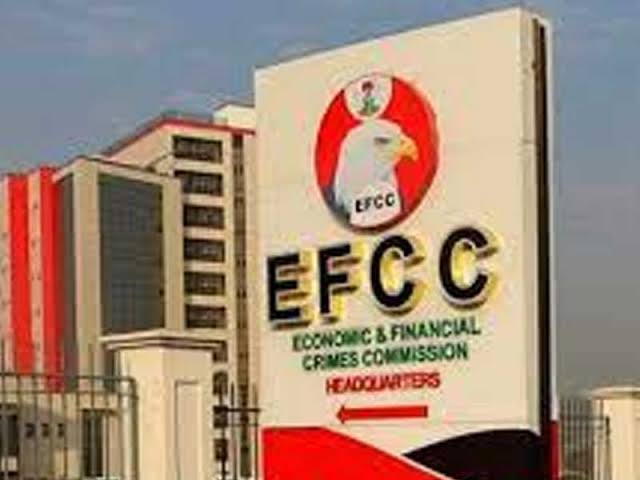A witness of the Economic and Financial Crimes Commission, Nicholas Ojehomon, on Thursday, admitted before a Federal High Court in Abuja, that there was no wired transfer of fees from the Kogi State Government or any of the local governments in the state to the account of the American International School, Abuja.
Ojehomon, who is an internal auditor at the American International School, Abuja, also admitted that there was no transfer bearing the name Yahaya Bello in the records of parents who paid school fees for their wards.
Ojehomon, who testified as the third prosecution witness (PW3), stated this under cross-examination in the alleged money laundering trial of former Governor of Kogi State, Yahaya Bello.
During cross-examination by Bello’s counsel, Joseph Daudu (SAN), the witness told the court that there was no transfer bearing the name Yahaya Bello in the documents.
When he was given Exhibit 19 (the FCT Court judgment), and asked to read out parts of the judgment, the prosecution counsel, Olukayode Enitan (SAN), objected.
“But it has been tendered and admitted by the court. I should be allowed to conduct my case the way I like. My lord, what I am saying is that I should be allowed to conduct my case because it may be devastating to my case if I am not allowed to,” the defendant’s counsel stated.
After the judge overruled the objection, the witness thereafter read out the part of the judgment that said there was no court order for the school to return the money to EFCC or any judgment declaring the money as proceeds of money laundering.
The judgment also said AISA ought not to have paid the money to EFCC, that AISA cannot pay the EFCC or any other person monies paid under the future fee agreement without an order of the court.
In addition, the judgment held that AISA had a binding contract with the Bello family on future fee payments of school fees of children in the school and they cannot derogate therefrom.
The witness also admitted that the name of Yahaya Bello was not on the letter for the payment of the $760,910 to American International School.
On the source of the payment of school fees to the school, the EFCC witness admitted that there was no wired transfer from the Kogi State Government or any of the local governments in the state.
“If you check the entire statement, is there any wired transfer coming from the Kogi State government? Any column?” The defendant’s lawyer asked.
“No, there is no such name,” the witness responded.
“What of any local government,” the defendant’s lawyer asked.
Again, the witness said: “No.”
Meanwhile, the trial judge, Justice Emeka Nwite, earlier overruled the EFCC in its objection to the admissibility of a judgment of the Federal Capital Territory High Court in suit number FCT/HC/CV/2574/2023 between Mr. Ali Bello and Incorporated Trustees of American International School.
The judge had, at the last hearing, adjourned for ruling on the admissibility of the judgment, which had decided the issue of payment of fees or refund in the ongoing case in favour of the defendant.
Nwite held that the objection of the prosecution was preemptive, adding that the court had since moved away from the platform of technicalities to the platform of substantial justice.
He recalled that the EFCC lawyer, Kemi Pinheiro (SAN), had, at the last hearing on March 7, 2025, objected to the admissibility of the documents, saying the trial was a criminal trial and the defendant could not tender documents when the prosecution had not closed its case.
He therefore urged the court to reject the document.
Counsel to the defendant, Joseph Daudu (SAN), had, however, argued that the admissibility of the document was exclusively by the principle of relevance.
The main issue, he said, is “whether the facts are pleaded, whether the documents are relevant, whether the documents are admissible”.
He added: “Admissibility of documents is strictly guided by law as far as it satisfies the provision of Section 102 and 104 of the Evidence Act.
“The question is: at what point can the defendant tender documents?”
Justice Nwite said the court was inclined to agree with the counsel to the defendant, noting that the court was already on the platform of substantial justice.
“Consequently, the argument that the defence cannot present the document is hereby discountenanced,” the judge declared.
“Having said that, the objection of the prosecution is indeed preemptive. Consequently, the objection of the learned counsel to the prosecution is hereby overruled.
“The document sought to be tendered is hereby marked as Exhibit 19,” Nwite said.
He subsequently adjourned the case to May 9, 2025, for continuation of trial.

